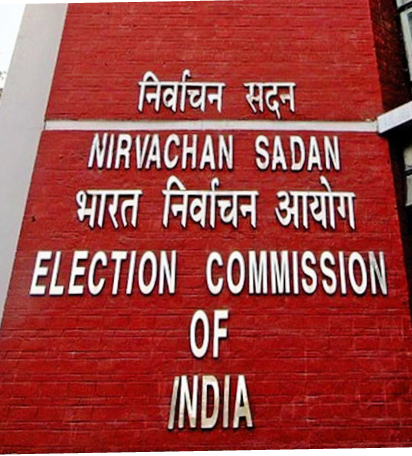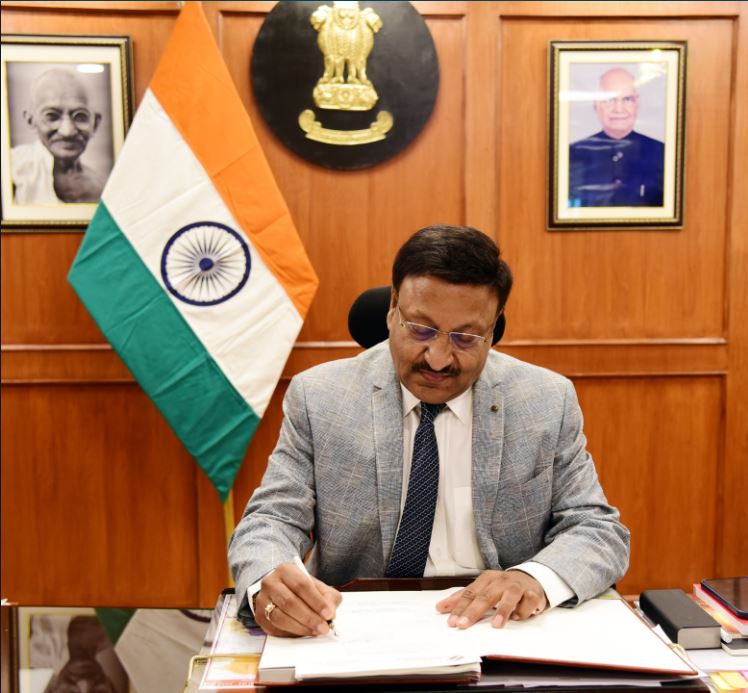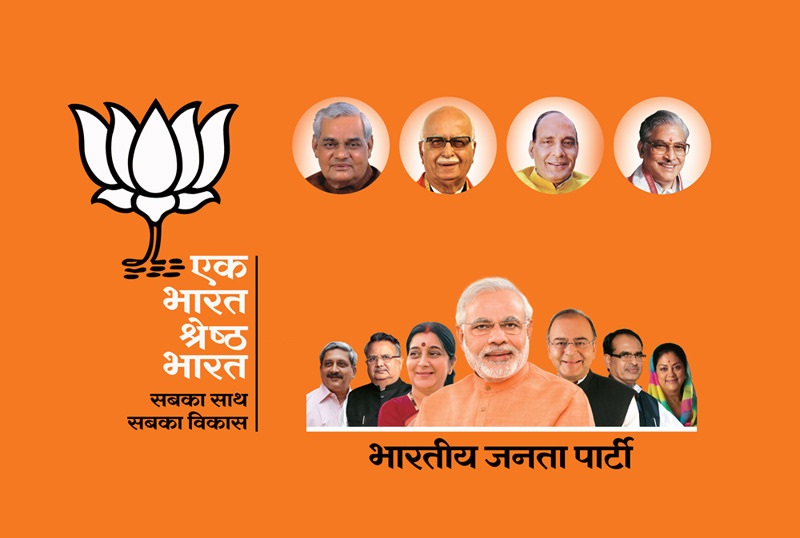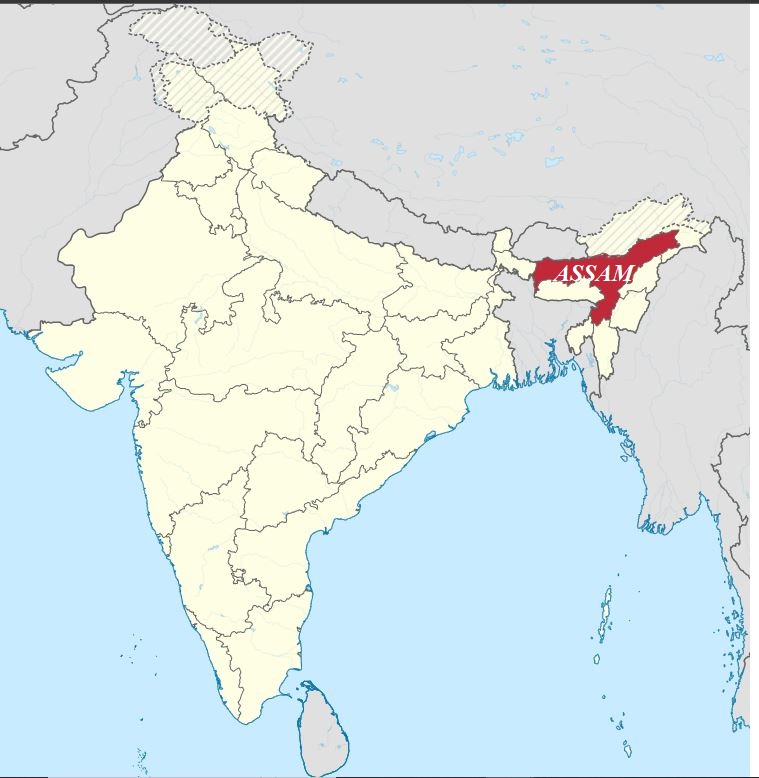Lok Sabha Election 2024 Dates Revealed: Opposition Criticizes EC Over 7-Phase Polling
Stay updated on BJP, ECI, CEC, Assam, Congress news. Get insights on elections, leaders, and political developments.

In a significant development, the Election Commission of India (ECI), led by Chief Election Commissioner Rajiv Kumar, has announced the highly anticipated dates for the Lok Sabha elections in 2024. The elections for the 543 Lok Sabha seats will span seven phases, commencing on April 19 and concluding with the counting of votes on June 4.
This announcement follows the recent appointment of two new Election Commissioners, Gyanesh Kumar and Sukhbir Singh Sandhu, in the wake of a surprise resignation and retirement within the commission.
The Model Code of Conduct (MCC) will now be enforced, marking a crucial period where political parties, candidates, and the government must adhere to strict guidelines outlined by the ECI.
However, the announcement of the election schedule has sparked criticism from the opposition, particularly regarding the seven-phase polling schedule. Members from various political parties have expressed concerns over the extended duration of the electoral process, with some labeling it as detrimental to governance continuity.
Congress leader Priyank Kharge accused the EC of strategically timing the elections to benefit the ruling party, suggesting that the schedule was designed to maximize Prime Minister Modi’s campaigning efforts.
Similarly, other opposition figures, such as Shiv Sena MP Priyanka Chaturvedi and West Bengal Minister Chandrima Bhattacharya, have raised objections, citing the incongruity between the seven-phase elections and the concept of “One Nation One Election.” They argue that such prolonged electoral processes disrupt governance and could potentially disenfranchise voters.
Former Jammu and Kashmir Chief Minister Omar Abdullah expressed disappointment over the EC’s failure to announce simultaneous assembly polls in the region, despite acknowledging their due occurrence.

On the other hand, Defense Minister Rajnath Singh expressed the BJP’s ambitious target of securing 370 seats in the Lok Sabha under Prime Minister Modi’s leadership, emphasizing the party’s commitment to advancing India’s development agenda.
As the nation braces for one of the longest election seasons in its history, political parties gear up for intense campaigning across the country. The electoral landscape promises to be dynamic, with each phase presenting unique challenges and opportunities for contenders.
The ECI, amidst mounting expectations and challenges, has assured the public of its dedication to ensuring a fair and transparent electoral process. With nearly 97 crore registered voters and extensive logistical arrangements in place, the stage is set for what promises to be a historic exercise in democracy.
Lok Sabha Election 2024 Dates Announced: Voting in 7 Phases, Results on June 4
In a significant announcement by the Election Commission of India (ECI), the schedule for the highly anticipated Lok Sabha elections in 2024 has been unveiled. The elections will be conducted in seven phases, commencing on April 19 and culminating with the counting of votes on June 4.
The Model Code of Conduct has been promptly enforced following the schedule’s announcement, ensuring a level playing field for all political parties and candidates.

Chief Election Commissioner (CEC) Rajiv Kumar outlined the distribution of constituencies across the phases, with 102 constituencies slated for the first phase, followed by 89, 94, 96, 49, 57, and 57 in subsequent phases.
In addition to the Lok Sabha polls, assembly elections in Arunachal Pradesh and Sikkim are set to take place on April 19, with Andhra Pradesh following suit on May 13. Odisha’s assembly elections will span four phases on May 13, May 20, May 25, and June 1.
Furthermore, the electoral landscape will witness by-polls in 26 assembly constituencies concurrently with the general elections, adding to the significance and complexity of the electoral process.
With the country gearing up for one of its most extensive democratic exercises, citizens are poised to exercise their franchise in shaping the nation’s future. The multi-phase polling ensures comprehensive coverage and facilitates the smooth conduct of elections across diverse regions and demographics.
As political parties strategize and campaign vigorously to garner support, the electorate awaits a decisive verdict on June 4, when the results will be declared.
Assam Lok Sabha Election Dates 2024 Announced: Polls Divided into 3 Phases; Check Schedule and Constituency-wise Details
The Election Commission has unveiled the schedule for the upcoming Lok Sabha elections in Assam, signaling a pivotal moment in the state’s political landscape. The elections for the 14 Lok Sabha constituencies in Assam will be conducted in three phases on April 19, April 26, and May 7, with the results slated for declaration on June 4.
Here’s a breakdown of the constituencies and their respective phases:
- Phase 1 (April 19): Kaziranga, Sonitpur, Lakhimpur, Dibrugarh, Jorhat
- Phase 2 (April 26): Darrang-Udalguri, Diphu, Karimganj, Silchar, Nagaon
- Phase 3 (May 7): Kokrajhar, Dhubri, Barpeta, Guwahati
As Assam stands as the gateway to the northeast, the forthcoming Lok Sabha elections are poised to witness a high-stakes battle between the ruling BJP, the opposition Congress, and various regional parties.

Reflecting on the previous Lok Sabha elections held in 2019, Assam witnessed a similar phased polling across its 14 constituencies. The distribution of voting phases and constituencies was as follows:
- Phase 1 (April 11): Tezpur, Kalibor, Jorhat, Dibrugarh, Lakhimpur
- Phase 2 (April 18): Karimganj, Silchar, Autonomous District, Mangaldoi, Nowgong
- Phase 3 (April 23): Dhubri, Kokrajhar, Barpeta, Guwahati
In the 2019 elections, the BJP emerged victorious in 9 out of the 14 Lok Sabha seats in Assam, marking a significant increase from its previous tally of 2 seats in 2014. Meanwhile, the Congress secured 3 seats, with the AIUDF clinching 1. Notably, the BJP also garnered an impressive vote share of 36%, closely followed by the Congress at 35.4%.
The upcoming elections hold immense significance for Assam’s political landscape, with the electorate eagerly awaiting the opportunity to shape the state’s future trajectory.
[Stay updated with comprehensive coverage and analysis of the Assam Lok Sabha Election 2024. Click here to delve deeper into the schedule, constituencies, and implications of the upcoming polls.

Key Highlights: Lok Sabha Elections 2024 Scheduled in Seven Phases, Results on June 4
The Lok Sabha elections for all 543 seats are set to unfold in seven phases, commencing on April 19 and culminating with the announcement of results on June 4, as confirmed by the Election Commission.
Here’s a concise breakdown of the crucial points:
- Seven-Phase Election Schedule: The election process will unfold across seven phases starting from April 19, with subsequent phases on April 26, May 7, May 13, May 20, May 25, and concluding on June 1.
- Assembly Elections and Bypolls: Simultaneously, assembly elections are slated for Andhra Pradesh on May 13, and for Arunachal Pradesh and Sikkim on April 19. Odisha will witness voting in two phases on May 13 and May 20. Bypolls for 26 assembly seats will also coincide with the Lok Sabha polls.
- Voter Statistics and Infrastructure: With a staggering 97 crore registered voters and 10.5 lakh polling stations, the electoral machinery is prepared for the democratic exercise. The participation of 1.5 crore polling officials and security personnel, along with 55 lakh EVMs and 4 lakh vehicles, underscores the scale of the operation.
- Youth and First-Time Voters: Notably, there are 1.8 crore first-time voters and 19.47 crore voters aged between 20-29 years, indicative of the significant youth demographic in the electorate.
- Focus on Responsible Social Media Usage: The Election Commission emphasizes responsible social media conduct, with stringent actions promised against the spread of fake news. Political parties are urged to uphold ethical campaigning standards, refraining from personal attacks and abusive language.
- Enforcement Against Criminal Elements: Parties are mandated to justify ticket allocations to candidates with criminal backgrounds, with stringent measures in place to address violence and criminal activities during elections.
- Sustainable Election Practices: Reflecting environmental consciousness, the Election Commission issues directives for sustainable election practices, aiming to minimize environmental impact.
- Special Provisions for Vulnerable Groups: Inclusive measures include ‘vote-from-home’ facilities for citizens above 85 years old and persons with disabilities. Transport arrangements and special provisions at polling stations via the Saksham app aim to facilitate their participation.
- Technological Vigilance and Security: Enhanced surveillance, including drone-based border monitoring and a 24×7 integrated control room, underscores the commitment to ensuring fair and secure elections.
As the nation gears up for the democratic exercise, stakeholders are urged to prioritize integrity, inclusivity, and responsible citizenship, ensuring a robust democratic process.
[Stay informed with comprehensive coverage of the Lok Sabha Elections 2024. Click here for detailed insights into the schedule, regulations, and implications of this critical electoral event.
FAQ(s) on BJP (Bharatiya Janata Party), Election Commission of India (ECI), Chief Election Commissioner (CEC), Assam, Congress
Q1.What is the aim of the Bharatiya Janata Party?
The Bharatiya Janata Party (BJP) upholds core values of nationalism, democracy, Gandhian socialism, positive secularism (Sarva Dharma Sama Bhava), and value-based politics. It is dedicated to promoting national integration while advocating for the decentralization of both economic and political power.
Q2.Who is owner of BJP?
The Bharatiya Janata Party (BJP) was established in April 1980 by former Prime Minister Atal Bihari Vajpayee and Deputy Prime Minister L. K. Advani. The term “Bharatiya” translates to “Indian,” while “Janata” signifies “People.” The political ideology of the BJP aligns closely with that of the Rashtriya Swayamsevak Sangh (RSS).
Q3.What is ECI?
The Election Commission of India functions as an independent constitutional body tasked with overseeing both Union and State electoral procedures in India. Its jurisdiction includes conducting elections for the Lok Sabha, Rajya Sabha, State Legislative Assemblies, as well as overseeing the electoral processes for the President and Vice President of the country.
Q4.Who is the head of ECI in India?
Mr. Rajiv Kumar, who has been serving as an Election Commissioner at the ECI since September 1, 2020, assumed the role of the 25th Chief Election Commissioner on May 15, 2022. Before joining the Election Commission, Mr. Rajiv Kumar held previous responsibilities in his career.
Q5.Who is the present Chief Election Commissioner of India 2024?
Mr. Gyanesh Kumar assumed office as an Election Commissioner in the Election Commission of India on March 15, 2024. He belongs to the 1988 Batch Kerala Cadre of the Indian Administrative Service. Following the completion of his B. Tech degree, he embarked on his career journey.
Q6.What is the rank of Chief Election Commissioner of India?
As of January 2024, India holds the 12th position among the world’s most powerful countries. This ranking considers multiple factors such as economic stability, robust international relationships, and military prowess. Additionally, India stands as the 5th largest economy globally, following the United States, China, Japan, and Germany, based on GDP rankings.
Q7.Why was Assam famous?
Assam is renowned for its production of Assam tea and Assam silk. It holds the distinction of being the inaugural location for oil drilling in Asia. Additionally, Assam boasts a rich biodiversity, serving as the habitat for iconic wildlife species such as the one-horned Indian rhinoceros, wild water buffalo, pygmy hog, tiger, and various Asiatic bird species. Moreover, it offers one of the few remaining natural habitats for the Asian elephant.
Q8.What is Assam famous food?
Assam boasts a variety of delectable dishes, including fish curry, fish fry, bamboo shoots fry, and dail—a traditional Assamese delicacy prepared with fish and vegetables. Known for its mild flavor profile, Assamese cuisine typically incorporates ginger, garlic, and chili peppers in moderation, offering a delightful culinary experience that is not overly spicy.
Q9.Why is it called congress?
A congress refers to a formal gathering of representatives from various countries, constituent states, organizations, trade unions, political parties, or other groups. Originating from Late Middle English, the term originally described a meeting of adversaries during battle, derived from the Latin word “congressus.”
Q10.Who is the Congress CM?
Siddaramaiah, born on August 3, 1947, and commonly known by his nickname Siddu, is an Indian politician currently holding the position of the 22nd Chief Minister of Karnataka since 2023.
